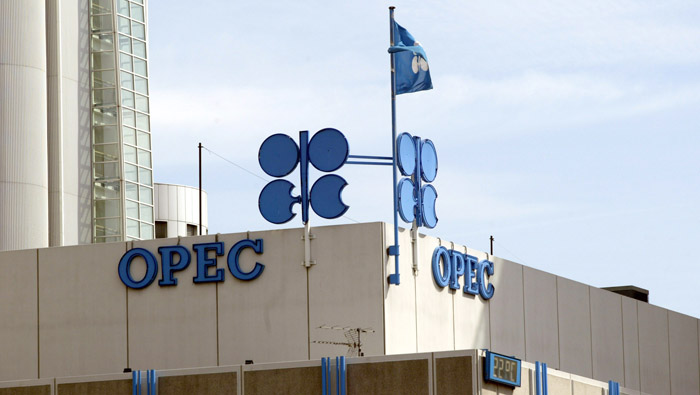
Doha: Oil producers from Organisation of Petroleum Exporting Countries (Opec) and beyond are finalising a plan to discuss freezing output at a meeting in Qatar in mid-April, the latest move in a campaign by financially-stricken crude exporters to shift the dynamics of an over-supplied market.
Prices have rallied more than 30 per cent since a mid-February proposal by Saudi Arabia, Russia, Venezuela and Qatar in February to cap oil output and reduce a worldwide surplus that had seen prices slump to 12-year low in January. The summit in April would seek commitments from a wider range of producers both within and outside the Opec.
Qatar’s oil minister said that countries would meet in the nation’s capital Doha on April 17 without providing details of who would attend. Delegates from three members of the Opec said they hadn’t yet received an invitation and two people with knowledge of the matter said no date had been finaliaed. They asked not to be identified because the talks are private.
Saudi Oil Minister Ali Al Naimi and his Russian counterpart Alexander Novak, who represent the world’s largest exporters, will discuss the meeting on Wednesday by phone, one person said.
The proposed freeze "put a floor under oil prices," Qatari Oil Minister Mohammad Al Sada said in an e-mailed statement on Wednesday. "To date, around 15 Opec and non-Opec producers, accounting for about 73 per cent of global oil output, are supporting this initiative."
Oil rallied after the Qatari statement, gaining as much 1.5 per cent to $39.33 a barrel in London.
There are reasons to be doubtful that the planned freeze can radically alter an oil market that’s fallen victim to a global fight for market share, causing stockpiles to rise to a record high. Most significantly, Iran is seeking to increase production after the end of economic sanctions and has said it won’t participate in any accord until its output has recovered.
Iran increased output by 187,800 barrels a day to 3.13 million a day in February, the biggest monthly gain since 1997, OPEC said in its monthly report on Monday. Brazil will also add more than 100,000 barrel of supply this year and has shown little interest in taking part.
"We will now see if Opec and Russia are able to freeze the bears in the oil market," said Olivier Jakob, managing director at consultants Petromatrix. "The significance of the agreement is that it could remove the perception that Opec is fighting for market share."
There have been other forces driving prices higher in recent weeks. Outages from Iraq and Nigeria have disrupted more than 800,000 barrels a day of supply and tightened the Brent market, according to Citigroup. And falling drilling activity in the United States shale industry has seen analysts raise forecasts for declines in North American production.
One key question is how fast shale production production could come back if the Opec and some non-Opec producers succeed in driving prices higher.
"It’s not surprising they’d be willing to agree to this because the outlook for further production increase was quite limited," Jeff Currie, global head of commodities research at Goldman Sachs., said in an interview of Bloomberg Television. "You can’t’ operate a cartel the way you used to."